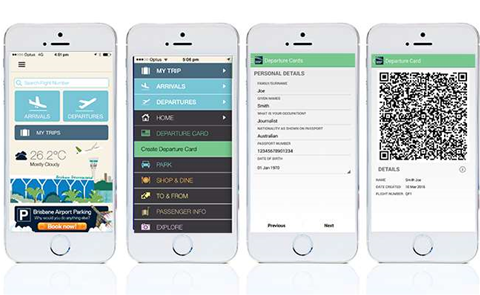The fourth chapter of Jan Chipchase’s book Hidden in Plain Sight deals with how we interact with what we carry. The notion of range of distribution is quite interesting in particular here in Singapore because it is very different from what I’m used to in France. For example leaving your belongings on a table, while you get your food is something that is very common here, whereas you would never do it in France (even on a campus food court). But then I guess it goes as a whole with the general feeling of security or insecurity of the country you find yourself in. Although risk of theft in France is not as high as in other countries, it can still occur, which is why people tend to hold on to their belongings wherever they find themselves.
The author mentions predictive shipping in this chapter, giving the example of Amazon which could send you products based on your previous purchases or search inquiries. I don’t necessarily think that it is a bad idea, because we know that big companies already do monitor everything that we do, so we (as consumers) might as well gain something from it as. And since we could have the possibility not to accept it, the risk for us consumers is very low. It is the company who would be the most at risk and would have to create very robust algorithms to know for sure the product they are sending us is something we would most likely to keep and therefore buy. This would however redefine completely marketing and advertisement strategies.
Another example of predictive shipping could be for medicine, say you look online at the symptoms for a cold or a flu on a dedicated website, a medicine manufacturer detects it thanks to an algorithm and sends you, with the approval of a doctor, the appropriate medicine.

Lastly, in regard with what the author says about modern technologies, in particular smartphones and cloud based services, I feel like our mind is more at ease when we go somewhere. When travelling for example, before you had to go through the trouble of printing your embarkation card and carrying throughout your journey, which can be stressful when you have many flights in a short period of time. Now everything is on your phone, you just need to have enough battery at the time of your flight, but that’s another issue.

Q1) In the chapter, the author mentions location based mobile data, and how they can allow us to “venture out in the world with a near-total lack of awareness”, but he only seems to view it as an advantage whereas this in my opinion can be a problem. This process inhibits our ability to make decisions on our own, we rely on information posted by someone else and therefore we miss out on what could be a great experience (wondering in a restaurant and being amazed by their food).
Q2) The triumvirate Money-Keys-Phone concerns today’s society, but I would like to know how it would have been 40 or 50 years ago for example, when there weren’t any mobile phones. For example did people carry around a textbook with the phone numbers of everyone they knew, or did they just not communicate as much as we do now ?